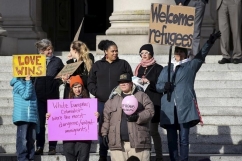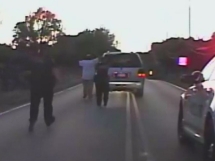Russell Moore — the president of the Ethics & Religious Liberty Commission, which is the public-policy arm of the Southern Baptist Convention — met with U.S. President Barack Obama on Thursday to discuss prison reform.
He said he was quite happy with the turnout of their meeting.
Moore told The Christian Post that Obama was actually "very receptive" to hear the prison reform ideas that are being pushed by both conservative and liberal activists.
The meeting was attended by dozens of other people such as Attorney General Loretta Lynch and Senior Advisor Valerie Jarrett. Moore said the meeting was "pretty evenly divided between people who would be more associated with the right and people who would be more associated with the left."
He said he was glad that Obama, who is often criticised by the faith community because of his stance on abortion and same-sex marriage, "was very receptive to everything that we were saying, including the importance of faith-based ministries to prisoners."
"We took into account what it meant to prevent further criminality," Moore said. "And there's a spiritual element to that, there's a family element to that, and there's a second chance opportunity from the community in making things right where we can. The president was very receptive to that and was clearly very passionate about the issue."
Moore was one of a long list of people who earlier signed a letter addressed to Republican congressional leadership. The signatories sought to advance bills that would help in reforming the country's criminal justice system.
Moore and other faith leaders hoped to reduce recidivism, which refers to a person's relapse into criminal behaviour, as well as modify the implementation of mandatory minimum sentencing. They also wanted to establish halfway houses for prisoners who have not committed serious or violent felonies.
"These state-led reforms have made communities safer by successfully reducing recidivism and saving taxpayers billions of dollars that had been slated for prison expansion and construction costs. Most importantly, even as prison populations declined, states saw crime rates fall," they noted in their letter.

















